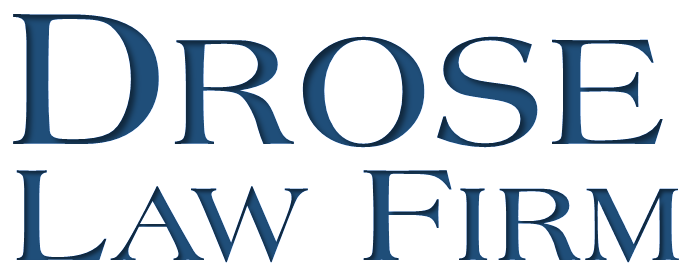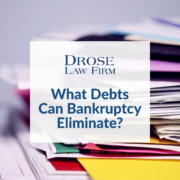What Debts Can Bankruptcy Eliminate?
One question bankruptcy lawyers are often asked is, “what debts can bankruptcy eliminate?” While the exact answer depends on the type of bankruptcy being filed and your overall situation, in many cases, bankruptcy will discharge most types of unsecured debt. Let’s take a closer look:
Various Types of Unpaid Bills
Unsecured debt is debt that is not backed by any assets. Bankruptcy can discharge unsecured financial obligations such as medical bills, overdue utility and phone bills, and memberships. Your bankruptcy lawyer can clarify which debts are unsecured and eligible for discharge through bankruptcy.
Personal Loans
Any personal loans made to you by another individual that are not secured by collateral may be discharged through bankruptcy filings. Be sure to disclose all personal loans to your bankruptcy attorney.
Unsecured Credit Card Balances
Balances on unsecured credit cards may also be discharged during a bankruptcy. Your bankruptcy attorney will be able to determine whether or not your credit card debt is secured or unsecured.
Some secured debt such as mortgages, auto loans, etc. can also be eliminated provided you relinquish and return the property. It is extremely important to disclose all of your debts and financial obligations to your bankruptcy attorney so we can examine everything. It is also important to note that debt not listed on your filing will not be eligible for discharge. Remember, not all lawyers handle bankruptcy. Charleston residents and those in surrounding areas have trusted the Drose Law Firm to handle their bankruptcy and creditor/debtor needs for 30 years. Give us a call to learn more today!






